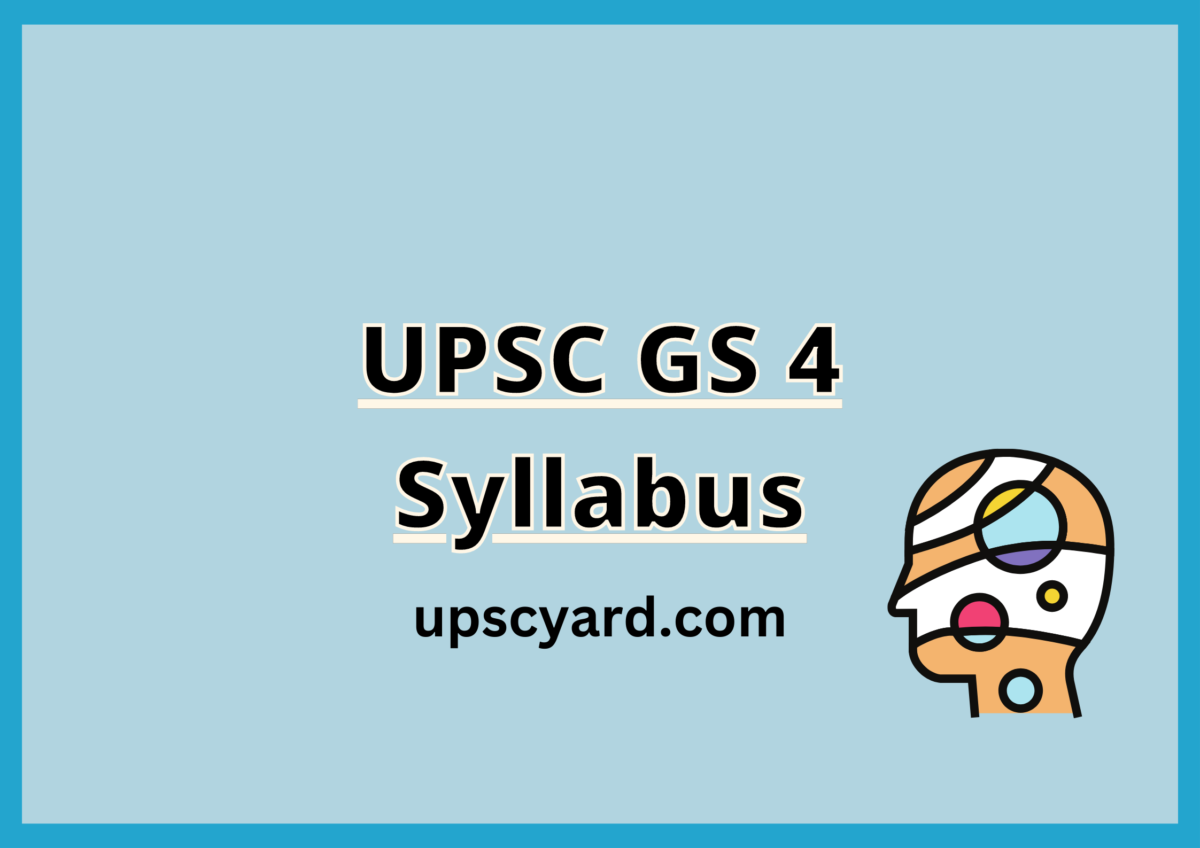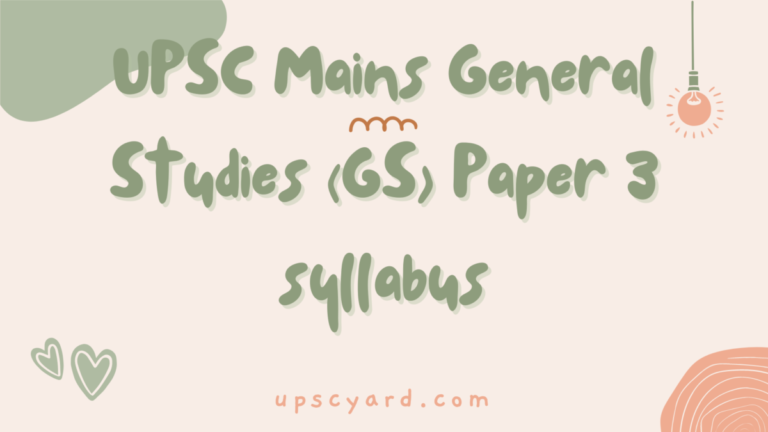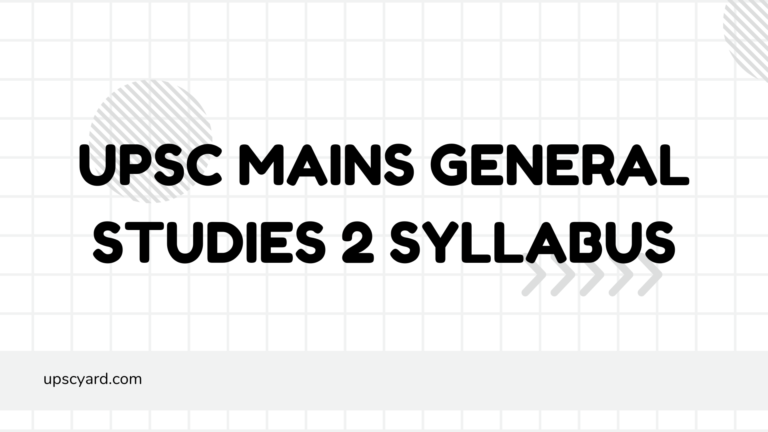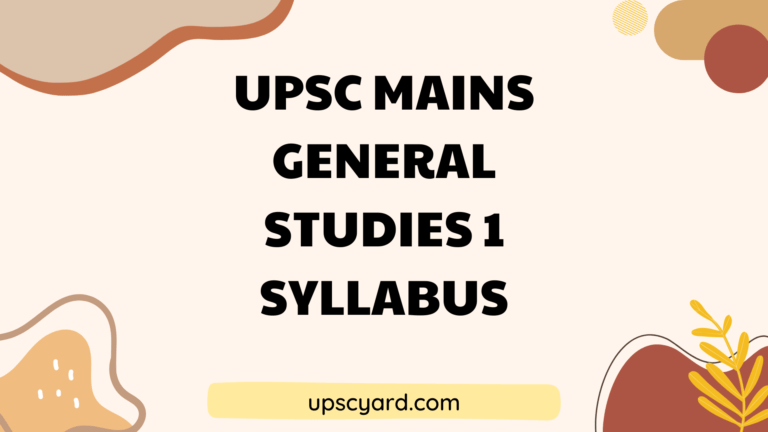UPSC GS 4 Syllabus
General Studies- IV: Ethics, Integrity and Aptitude
This paper presents a series of inquiries designed to assess candidates’ perspectives and strategies when confronted with honesty, uprightness in the public sphere, and their adeptness in resolving diverse societal challenges and disputes. These queries may adopt a scenario-based method to discern these facets. The subsequent expansive domains will be encompassed.
GS 4 Structure Breakdown
Let us delve into the key components of the UPSC Mains General Studies Paper 4 – its structure and composition:
The paper comprises twelve questions, divided into two distinct sections. Notably, before 2018, the question count was fourteen; however, the shift has increased intricacy while decreasing the number of questions.
Every single question necessitates a response.
The queries hold either a 10-mark or a 20-mark value, contingent upon the response’s length. Precisely, 10-mark questions warrant concise answers within 150 words, while 20-mark inquiries require more comprehensive responses within 250 words.
The total score allocated to this paper reaches 250 marks.
These questions come in two distinct flavors:
1. Direct inquiries that relate to concepts, evaluating the candidate’s grasp of ethical aspects and aptitude (constituting 125 marks).
2. Case studies designed to assess the candidate’s practical application of these concepts to scenarios involving the candidate and other stakeholders such as politicians, interest groups, the general populace, and additional individuals (also constituting 125 marks).
This paper emerges as the most dynamic among the four General Studies Papers. Its content varies significantly on a year-to-year basis. Hence, aspirants must acquaint themselves with the syllabus and observe trends from recent years.
UPSC GS 4 syllabus aims to present a set of questions intended to gauge the viewpoints and strategies of candidates regarding matters of honesty, uprightness in public engagements, and their problem-solving methods in the face of diverse challenges and societal dilemmas.
These queries might use the case study methodology to assess these dimensions.
- Ethics and Human Interface: Essence, Determinants and Consequences of Ethics in – Human Actions; Dimensions of Ethics; Ethics – in Private and Public Relationships. Human Values – Lessons from the Lives and Teachings of Great Leaders, Reformers and Administrators; Role of Family Society and Educational Institutions in Inculcating Values.
- Attitude: Content, Structure, Function; its Influence and Relation with Thought and Behaviour; Moral and Political Attitudes; Social Influence and Persuasion.
- Aptitude and Foundational Values for Civil Service, Integrity, Impartiality and Non-partisanship, Objectivity, Dedication to Public Service, Empathy, Tolerance and Compassion towards the weaker-sections.
- Emotional Intelligence-Concepts, and their Utilities and Application in Administration and Governance.
- Contributions of Moral Thinkers and Philosophers from India and World.
- Public/Civil Service Values and Ethics in Public Administration: Status and Problems; Ethical Concerns and Dilemmas in Government and Private Institutions; Laws, Rules, Regulations and Conscience as Sources of Ethical Guidance; Accountability and Ethical Governance; Strengthening of Ethical and Moral Values in Governance; Ethical Issues in International Relations and Funding; Corporate Governance.
- Probity in Governance: Concept of Public Service; Philosophical Basis of Governance and Probity; Information Sharing and Transparency in Government, Right to Information, Codes of Ethics, Codes of Conduct, Citizen’s Charters, Work Culture, Quality of Service Delivery, Utilization of Public Funds, Challenges of Corruption.
- Case Studies on above issues.
Breakdown of UPSC GS 4 syllabus
- What is Ethics?
- The role of ethics
- Environmental Ethics
- Personal ethics
- Professional ethics
- Difference between personal and professional ethics
- Conflict of Interest
- Happiness
- Integrity
- Knowledge
- Human beings are ends and means.
- Ethical Deficit to Trust Deficit
- Corruption and its causes
- Human Values Human Values
- Morality, Ethics & Law.
- Politics and ethics.
- Public Interest.
- Personal Interest Ethics and Self-Interest.
- Ethics in Public Administration: Status and Problems;
- Transparency.
- Accountability.
- Fairness and justice.
- Ethical values and a good life.
- Moral Values.
- Ethical Conduct.
- Code of ethics.
- Code of conduct.
- Means and end.
- Ethical dilemmas in public administration.
- The basic principle of public life.
- Public servant.
- Constitutional morality.
- Crisis of conscience.
- Probity in governance.
- Social Influence & Persuasion.
- Attitude formation.
- Bureaucratic Attitude.
- Democratic Attitude.
- Patriotism.
- Emotional Intelligence.
- Emotional Intelligence in administration and governance
- Anger.
- Negative Emotion.
- Undesirable behaviors.
- Utility and Application in administration governance.
- Impartiality.
- Non-partisanship.
- Ethics in Public Life.
- Accountability in public service.
- Perseverance in public service.
- Commitment to civil services.
- Courage of conviction.
- Attributes of a civil servant.
- Social Justice in the Indian Context.
- Impact of corruption.
- Conscience.
- Personal Conscience.
- Voice of conscience.
- Crisis of conscience.
- Trustworthiness and fortitude in public services.
- Empathy towards the weaker section
- Tolerance towards the weaker section.
- Compassion towards the weaker section.
- Dedication to public service.
- Objectivity.
- Attitude.
- Content, Structure, Function Attitudes.
- Political Attitude.
- Views on nationalism, political conservatism, political liberalism, political radicalism.
- Moral Attitude.
- Ethical issues in international relations.
- Corporate Governance.
- Concept of Civil Services.
- Civil Services – Status & Problems.
- Context and Challenges of the Civil Services.
- Laws, Rules, Governance, and Conscience.
- Ethical Governance.
- Strengthening of Ethical, Moral Values in Governance.




